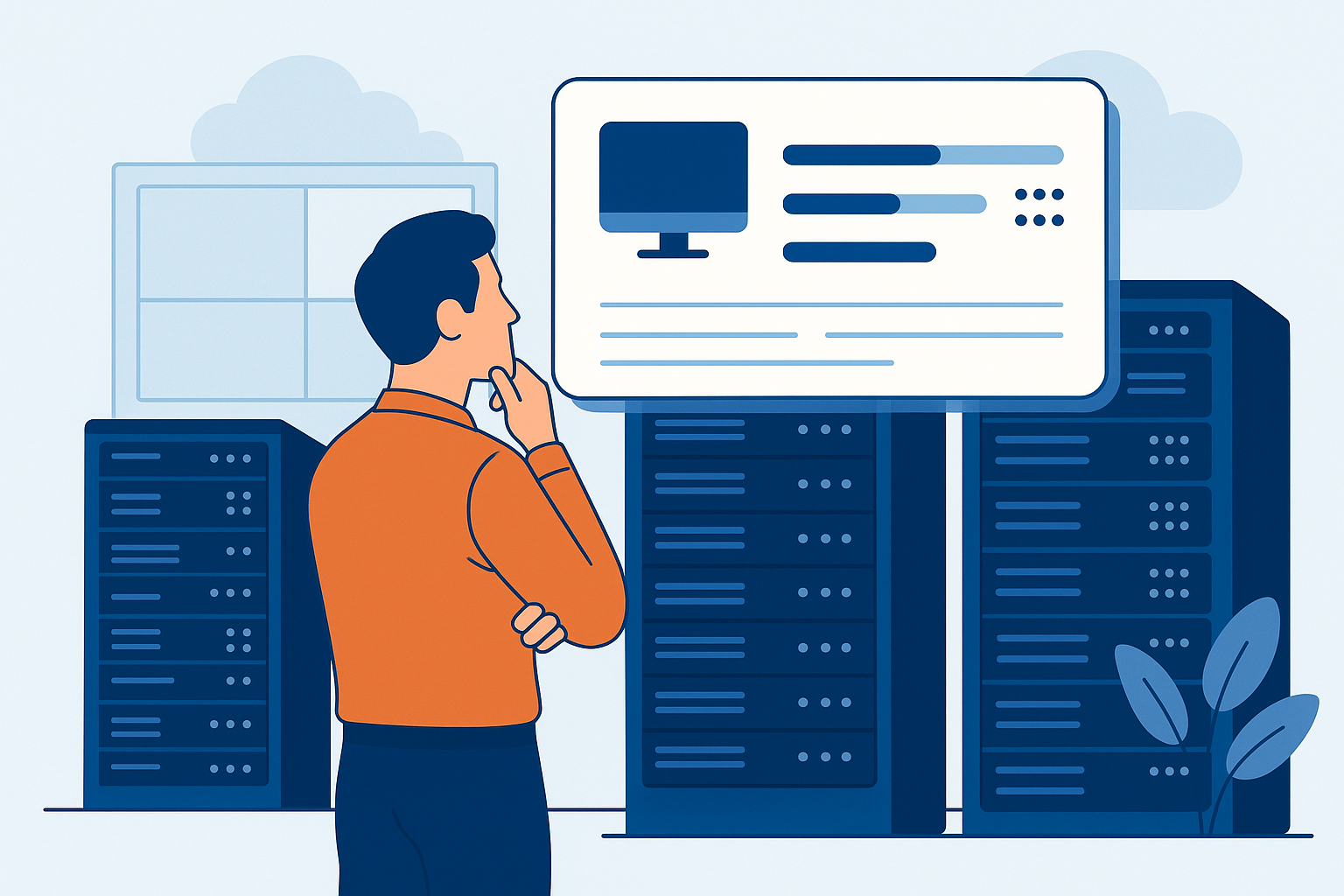Selecting a dedicated server isn’t something you want to rush. It’s a decision that can directly affect your business's day-to-day operations, customer experience, and even your profit margins. With so many options available, it’s important to know exactly what you need, and which server specs will deliver.
Start with Your Business Needs
Before getting into the technical details, step back and think about what you're actually going to use the server for. Different types of workloads demand different setups:
- Web Hosting: Running websites with moderate traffic? You'll want a balanced mix of CPU power and plenty of RAM.
- Database Servers: Databases thrive on speed and memory. Fast storage like NVMe SSDs and higher RAM are key here.
- Application Servers: Depending on the application, you might need more CPU power, more memory, or both.
- VPN Services: If you’re setting up a VPN, focus on high network throughput and a solid CPU.
- Gaming Servers: For gaming, it’s all about low latency and high clock speed processors.
Understanding your specific workload helps you avoid overspending, or worse, underestimating what you need.
Key Hardware Components to Look At
1. CPU (Processor)
The CPU is the engine of your server. When comparing processors, think about:
- Cores: More cores mean better multitasking and the ability to handle heavier loads.
- Clock Speed: Higher GHz speeds are better for single-threaded tasks where raw speed matters.
- Processor Generation: Newer chips don’t just run faster, they’re often more energy efficient too.
For most businesses, you can't go wrong with Intel Xeon or AMD EPYC processors. If you’re looking for top-end performance, look at the latest Intel Xeon Scalable or AMD EPYC 7003 series models.
2. RAM (Memory)
RAM determines how well your server handles multiple tasks at once. Without enough memory, even the best CPU will struggle.
- Capacity: For basic tasks, 16GB will do. For database or application servers, start at 32GB or 64GB, and scale up if needed.
- Type: DDR4 is the standard today, though DDR5 is starting to appear in newer setups.
- ECC (Error-Correcting Code): ECC RAM can detect and correct memory errors, which is critical for business applications where stability matters.
3. Storage
Storage isn't just about having enough space, it’s about speed and reliability too.
- SSD vs. HDD: SSDs are much faster than HDDs, though they cost more. HDDs offer larger storage at a lower price point.
- NVMe vs. SATA SSDs: NVMe SSDs blow SATA drives out of the water in terms of performance, ideal if you're dealing with a lot of database or application data.
- RAID: Using RAID configurations can boost performance, and/or give you redundancy in case of drive failure.
- Capacity: Always think ahead, plan for backups, future growth, and unexpected spikes in usage.
Pro tip: If you’re running a database, consider using fast NVMe storage for your live database, and cheaper SATA drives or HDDs for backups.
4. Network Connectivity
Your server’s connection to the outside world can make or break the user experience.
- Bandwidth: 1Gbps is common and usually enough, but if you're moving large amounts of data, 10Gbps is worth considering.
- Redundancy: Having multiple network interfaces means you’ve got a backup if one goes down.
- DDoS Protection: Essential if your server is customer-facing. Don’t leave yourself vulnerable.
- Data Center Location: Pick a server location close to your primary users to reduce latency and improve speed.
Choosing the right dedicated server isn't about grabbing the biggest spec sheet you can afford. It’s about matching the server’s capabilities to your actual needs, today and tomorrow. Think about how you’re using it, where you expect to grow, and what performance really matters for your business.
At CloudSpace, we offer a full range of dedicated servers designed to meet a variety of business needs. Not sure what you need? Our team’s here to help you find the perfect fit, without the jargon or upsell.
